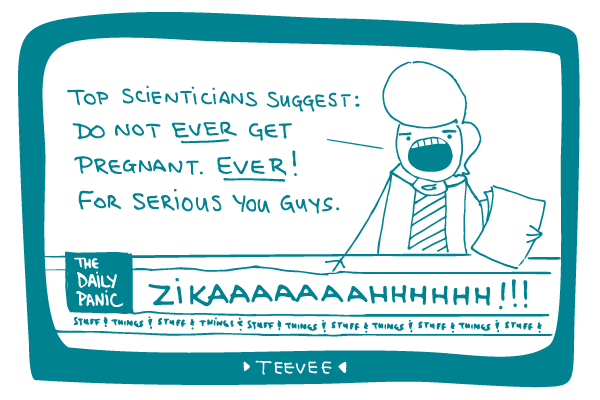
Since January, Zika virus has generated frenzied headlines, public health controversy, wild conspiracy theories, and a lot of anxiety — especially for women who are pregnant or considering becoming pregnant. And as summer arrives in the United States (and backyards once again fill up with mosquitoes), public interest is bound to intensify.
Emerging health threats like Zika and Ebola put health communicators in a tough spot. How can we talk about them honestly and clearly without stoking unhelpful fear? We’ve got a few ideas, dear readers.
Put the risk in context. Be clear about the danger, specifically to pregnant women in affected areas. But it’s equally important to clarify where the virus isn’t. If it’s not in the region where your readers are, say so. Point out that in most cases the virus is mild and goes away in a week or less.
Use plain language. This will be no surprise to our regular readers, but never throw around terms like “microcephaly” or “Guillain-Barré syndrome” without clearly explaining what they are.
Be honest about what we don’t know. Will Zika reach the U.S. this summer? Could it cause more serious complications in adults? No one knows yet, and that’s scary. But keep in mind that acknowledging uncertainty is a lot better than pretending it doesn’t exist. Glossing over the unknowns can make people feel suspicious or deceived, and that’s not going to help anyone.
Emphasize what people can actually do. Vague menaces like Zika can leave people feeling helpless. So always emphasize how people can take action. For example, clearly state CDC’s travel recommendations. Tell people about steps they can take to prevent mosquito bites.
Tell your audience to stay tuned for updates. When you’re dealing with uncertain dangers, encouraging people to be aware and learn more may be the most important message.
The bottom line: Take the time to think through what your readers need to know about Zika — and avoid causing panic.
Browse recent posts